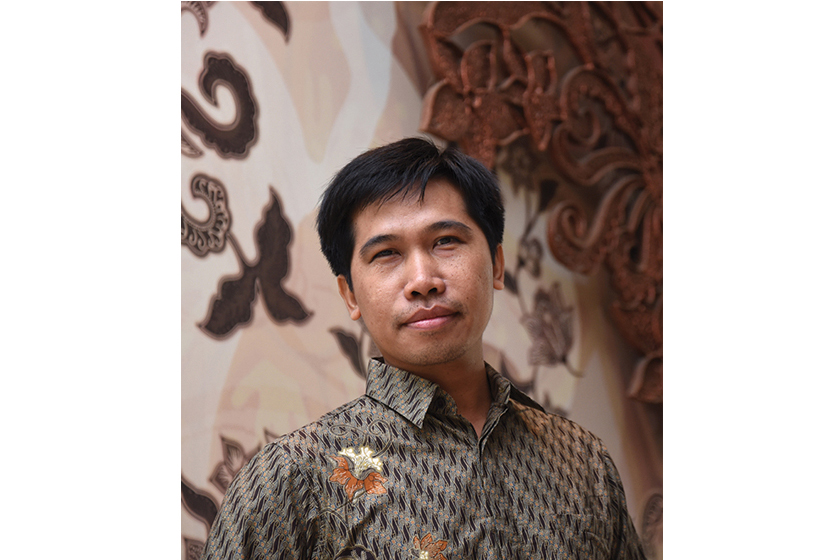In a first for West Nusa Tenggara, ten farmers in Muara Selayar, Pijot Village, Keruak District, East Lombok Regency, are learning how to grow shrimp using an environmentally-friendly technique that reduces pollution caused by untreated wastewater, which is a by-product of traditional shrimp farming.
The “biofloc” setup uses a tarpaulin pond built on metal frames and is much easier to clean between harvests compared to traditional shrimp farming. Funded by the Australian Government through the Alumni Grant Scheme and conducted by Universitas 45 Mataram in collaboration with the Research and Community Service Institute of Universitas Mataram—a different university—the program aims to improve welfare in poor coastal communities by providing an alternative livelihood.
The project leader is Universitas 45 Mataram lecturer Dr Muhamad Amin, who researched probiotics for his PhD from the University of Tasmania with an Australia Awards Scholarship. “Many of the farmers are illiterate, but through hands-on training, we were able to teach them how to use the scale, measure temperature, and monitor water quality, which is key to ensuring a successful harvest,” said Dr Amin. “The ten farmers were very enthusiastic and actively participated in every step of the process.”
The farmers weren’t the only ones excited about the program. “The Provincial Office of Fisheries has been keenly following the project, hoping to replicate the system,” for coastal communities in West Lombok and Middle Lombok regencies, Dr Amin said. The office has helped provide kits and equipment to monitor water quality, as well as a generator to ensure that there’s power 24/7—necessary for the biofloc system to run properly.
Each pond can house an average of 10,000 ten-day old postlarvae (PL10), more commonly called shrimp seeds. The shrimp can be harvested at around 3-4 months, which means an average of 3-4 harvests annually. “Ideally, a single pond could yield 75 kilograms of shrimp per harvest—a total of 750 kilograms for the ten ponds,” Dr Amin explained.
“The farmers will get to retain the profit, but to keep the program sustainable, they will be asked to return the operational costs of seed and shrimp feed, which we will then use to fund the next phase.”
Unfortunately, the first phase of the program was impacted by the magnitude 7 earthquake that hit Lombok on 5 August 2018. The metal frames of the shrimp ponds came loose, the tarps ripped, and the pipes broke. Electricity was cut off. “Only four out of the ten ponds could be harvested. Even then, the harvest wasn’t optimal, and the ponds only yielded 20 kilograms of shrimp each, with only one pond yielding 26 kilograms,” Dr Amin said.
It was close to two months before the farmers and project team could safely go back to the location to check the condition and begin repair. The Research and Community Service Institute of Universitas Mataram was able to help fully fund the repairs.
The team’s spirit remains unbroken. With the repairs now completed, they are cultivating the next cycle of shrimp seeds. “I have great hope that we will be eventually be able to extend the program to even more farmers,” Dr Amin said.





 Lombok farmers optimistic about eco-friendly shrimp farms
Lombok farmers optimistic about eco-friendly shrimp farms
